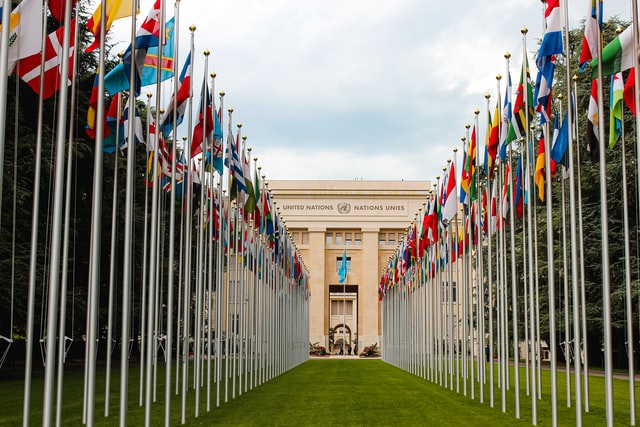Anti-Slavery Australia has endorsed the Concluding remarks by outgoing UN Special Rapporteur on Trafficking in Persons, especially Women and Children, Maria Grazia Giammarinaro. The UN Special Rapporteur noted that ‘regional and global instruments, soft law instruments, treaty-monitoring bodies documents, the regional human rights courts case law and civil society organisations practices have paved the way to a more comprehensive and genuinely human rights based anti-trafficking action’ and that twenty years after the adoption of the UN Protocol to Prevent, Suppress and Punish Trafficking in Persons, Especially Women and Children (Palermo Protocol), it is time to go beyond a criminal justice focused response to trafficking in persons.
These remarks were presented by the UN Special Rapporteur during webinars marking the 20th anniversary of the Palermo Protocol. The UN Special Rapporteur offered twelve recommendations on how to go beyond the Palermo Protocol, which were endorsed by Anti-Slavery and other civil society organisations around the world:
- The human rights of trafficked person should be at the centre of all efforts to prevent trafficking and to protect, assist, and provide compensation to victims
- The requirement for States to demonstrate their political will and commitment to prevent and combat exploitation in concrete ways; international organisations should always be taken in consideration when drafting policies
- Prevention should be a political priority for States which should take concrete actions, including funding civil society organisations and implementing education about respect of migrants and workers’ rights to eradicate corruption, xenophobia, and discrimination on any grounds
- The requirement for governments to create channels for regular migration; abolish any form of sponsorship; banning administrative detention for children; fully complying with principle of non-refoulement
- Provide early support based on confidential individual interviews for identifying personal vulnerability, carried out by trained staff. Identify personal and social vulnerabilities to exploitation
- Establish legislation on recruitment agencies, carrying out regular checks; criminalising recruitment associated with exploitation. States should ask companies to use only well-regulated labour recruitment firms, and to fully cover recruitment costs
- Strengthen legislation on labour rights and ensure their implementation by labour inspections; ensure that implementation of labour regulations is focused on workers’ rights rather than on immigration enforcement; create firewall between migrant authorities and labour inspectors. Ensure that companies that get government contracts are able to demonstrate labour rights protection including in their supply chains. Exclusion from states’ procurement procedures companies which fail to meet their obligations
- Establish legislation on mandatory human rights due diligence requiring companies to identify risks and adopt plans to minimise them. Companies should be held liable for damages if they have not complied with such requirements
- Companies have due diligence obligations to comply with human rights standards; companies should include monitoring mechanisms and grievance mechanisms to enable workers to report exploitation
- Introduce non punishment provision to ensure victims are not prosecuted, charged, or detained; decriminalise sexual services not amounting to exploitation
- Ensure that victims can appeal decision of competent authorities regarding denial of early support and residence permits, and can access justice and remedies; ensure that victims are entitled to claim the full spectrum of remedies for human rights violations and establish public funds for compensation of victims
- States should ensure funding for victims’ support including long term sustainable measures aimed at prompting full social inclusion. Such measures should protect victims from stigma and re-trafficking.
Read the UN Special Rapporteurs’s Concluding Remarks in full: Concluding remarks by UN Special Rapporteur on Trafficking in Persons Maria Grazia Giammarinaro.
